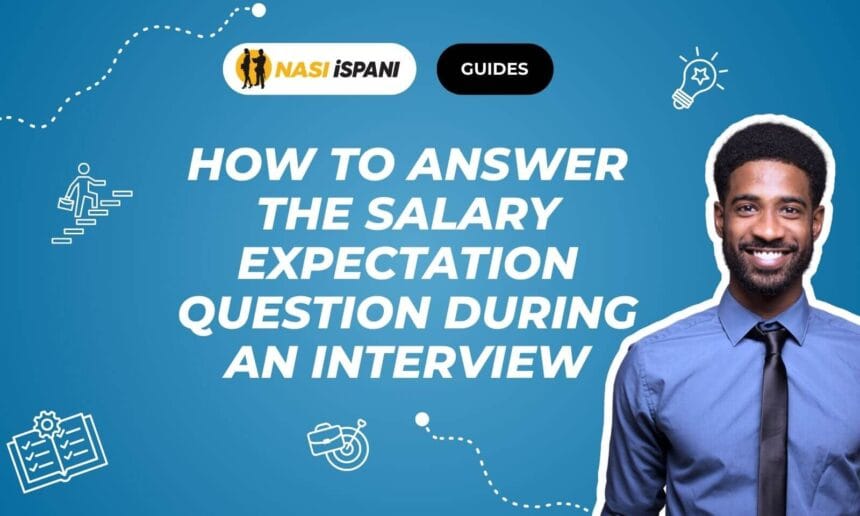Updated: March 2026. This guide was refreshed for 2026 relevance. Verify final requirements and deadlines on official sources before applying.
The question, “What are your salary expectations?” can significantly influence the outcome of a job interview. A well-considered response demonstrates your professionalism, understanding of industry standards, and confidence in your abilities. Conversely, an ill-prepared answer might result in underselling your worth or pricing yourself out of consideration.
This guide explores effective strategies for addressing salary expectations, with a focus on recent legislative changes in South Africa that impact both employers and job seekers.
Understanding the Employer’s Perspective
Employers inquire about salary expectations to assess whether a candidate’s financial requirements align with their budget and to gauge the value the candidate places on their skills and experience. A thoughtful response can indicate that you’ve researched industry standards and understand your worth.
Additionally, this question helps employers filter candidates early in the process. If your expectations are significantly above or below their range, it may not be feasible to proceed further. Recognizing this intent allows you to respond strategically, positioning yourself as a candidate worth investing in.
Research Industry Standards
Knowing the industry standards for your role is crucial when preparing to answer the salary expectation question. Start with tools that are tailored to South African job seekers, then supplement your research with global platforms.
Step 1: Use Nasi iSpani’s Local Salary Tools
Begin your research with Nasi iSpani’s calculators, designed specifically for the South African market:
-
Salary Estimator – Provides an estimated salary range based on your job title, experience, and location.
-
Salary Calculator – Calculates your net take-home pay after taxes and deductions, helping you understand your actual earnings.
These tools give a strong foundation for what to expect locally, ensuring your figures are realistic and relevant.
Step 2: Supplement with Online Salary Platforms
Once you have local benchmarks, use international platforms to cross-check and expand your research:
-
Glassdoor – Offers company-specific salaries and employee reviews.
-
Payscale – Provides detailed compensation data by role, experience, and region.
-
LinkedIn Salary Insights – Shows average salaries for similar positions across your industry.
These platforms are especially useful if you are targeting multinational companies or roles with international pay standards.
Step 3: Consider Key Factors That Affect Salary
-
Location – Salaries in major cities like Johannesburg or Cape Town may be higher due to the cost of living.
-
Company size – Large corporations typically offer higher compensation than smaller firms or startups.
-
Industry norms – Certain sectors, like finance or tech, often pay more than others.
Step 4: Document Your Findings
Create a simple chart or notes summarizing the salary ranges you’ve found, including details on location, company size, and benefits. This becomes a reference for setting your expectations and negotiating confidently during the interview.
Step 5: Set a Realistic Salary Range
Using your research, determine a salary range that reflects your skills, experience, and the responsibilities of the role. Position your range slightly above your ideal figure to leave room for negotiation.
How to Frame Your Answer
Once you’ve researched industry standards, the next step is framing your response in a way that demonstrates professionalism, confidence, and flexibility. Here’s how to do it effectively:
1. Provide a Salary Range, Not a Single Figure
Giving a range shows flexibility while setting clear boundaries. For example:
“Based on my research and understanding the responsibilities of this role, I believe a salary range of R300,000 to R350,000 per annum would be appropriate.”
Why it works:
-
It positions you as informed and reasonable.
-
Leaves room for negotiation without locking you into a single number.
2. Tailor Your Range to Your Ideal Salary
Start your range slightly above your ideal figure. This ensures you can negotiate down if needed, without underselling yourself.
3. Highlight Your Research and Value
Reference the research you did and your qualifications to reinforce that your expectations are based on objective data:
“Considering my five years of experience in project management, I would expect a salary in the range of R450,000 to R500,000 annually.”
4. Include Flexibility for Benefits
Remember that total compensation is more than just the base salary. You can frame your answer to reflect interest in the overall package:
“I’m looking for a salary in the range of R400 000 to R450 000, but I’m also interested in understanding the full benefits package and growth opportunities.”
5. Be Confident, Yet Polite
Your tone matters. Present your range confidently, but avoid sounding rigid or confrontational. Confidence shows you value your skills and experience without being arrogant.
Politely Deflecting the Question
If the salary question arises early in the interview process, it may be beneficial to defer the discussion until you have more information about the role’s responsibilities, company culture, and growth opportunities. A polite way to handle this is:
“I’m open to discussing salary, but I’d like to understand more about the role and its expectations before providing a specific figure.”
This response keeps the focus on the role and shows that your primary interest lies in contributing value rather than just the paycheck.
Negotiation Tips for the Interview
Negotiation is a critical part of addressing the salary question effectively. When discussing compensation, ensure your tone remains professional and collaborative. Instead of outright rejecting an offer, express interest in finding a middle ground. For example:
“I appreciate the offer and the opportunity to join your team. However, based on my research and the scope of the role, I’d like to explore whether there’s flexibility to increase the offer to closer to R450 000.”
This approach keeps the conversation open and demonstrates your willingness to work towards a mutually beneficial outcome.
Common Mistakes to Avoid When Discussing Salary
Answering the salary expectation question effectively requires preparation. Avoid these common pitfalls to ensure you present yourself as confident and informed:
1. Providing a Figure Too Early
Giving a number too soon can work against you if it’s outside the employer’s budget. Wait until you understand the role fully and have gathered enough information about the responsibilities and benefits.
Tip: Politely deflect early questions:
“I’d like to learn more about the role and its expectations before discussing specific salary figures.”
2. Being Vague or Indecisive
Responses like “I’m open” or “Anything is fine” signal a lack of preparation and may make employers question your confidence or understanding of your value.
Tip: Use your research to provide a clear range:
“Based on industry standards and my experience, I’m looking for a salary between R400 000 and R450 000 per year.”
3. Underpricing Yourself
Many candidates sell themselves short out of fear of rejection. Undervaluing your skills can lead to lower pay and missed opportunities for growth.
Tip: Use local benchmarks, like Nasi iSpani’s Salary Estimator and Salary Calculator, to determine a realistic range that reflects your experience and the market rate. Always aim for a range that shows your value while leaving room for negotiation.
4. Forgetting Total Compensation
Focusing solely on base salary can make you miss out on other benefits such as bonuses, retirement contributions, and flexible working arrangements.
Tip: Frame your answer to include benefits and growth opportunities:
“I’m looking for a salary between R400 000 and R450 000 per annum, and I’m also interested in understanding the full benefits package.”
5. Failing to Practice Your Answer
Even the best research won’t help if your response is unclear or hesitant. Rehearse your answer aloud to ensure you communicate confidently and professionally.
What to Do If They Push for a Number
Sometimes, employers may insist on a specific number. In this case, rely on your research to confidently answer the salary expectation question. For example:
“Based on my understanding of similar roles in this industry, I’d expect a salary of R550 000 annually, which I believe aligns with my skills and the responsibilities of the position.”
Understanding Your Rights Regarding Salary Disclosure
In South Africa, recent legislative developments have introduced significant changes to how salary information is handled during the recruitment process:
-
Fair Pay Bill: This proposed legislation aims to promote pay transparency and equity. Key provisions include:
-
Mandatory Salary Disclosure: Employers would be required to disclose the salary or salary range when advertising job posts, ensuring candidates are informed upfront.
-
Ban on Salary History Inquiries: Employers would be prohibited from requesting a payslip or inquiring about a candidate’s previous salary during the recruitment process, unless an offer has been made and the candidate voluntarily consents in writing.
-
These changes are designed to reduce pay disparities and promote equal pay for equal work.
Closing the Salary Discussion on a Positive Note
End the conversation by reiterating your enthusiasm for the role. For instance:
“I’m really excited about the opportunity to contribute to this team and believe we can reach an agreement that works for both of us.”
Mastering how to answer the salary expectation question requires preparation, strategy, and confidence. By following these guidelines and staying informed about legislative changes, you’ll be well-equipped to navigate this challenging interview topic with professionalism and poise.
Remember, this is your opportunity to demonstrate your value and set the stage for a successful career move.




